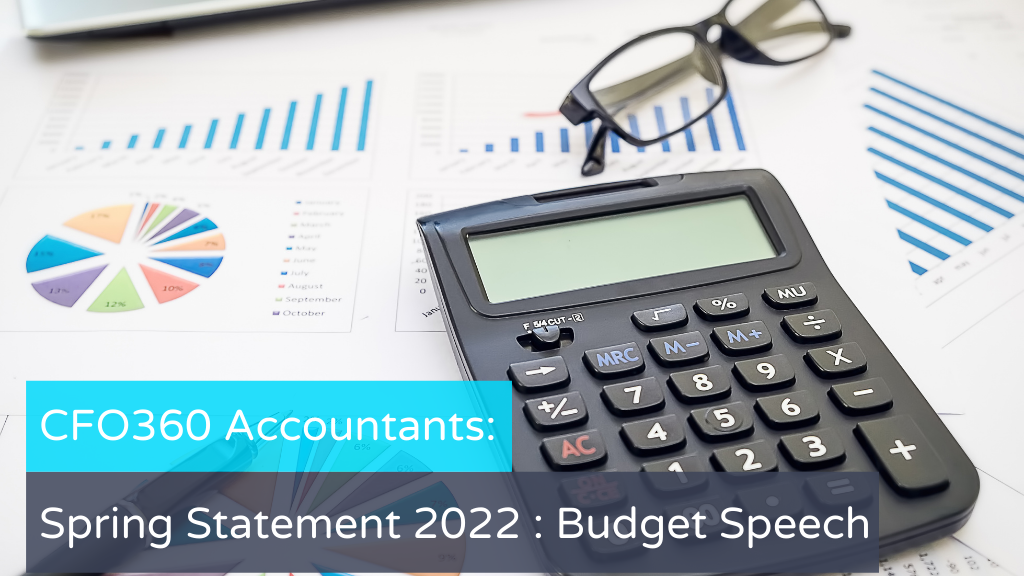On 23rd March 2022, the Chancellor delivered the 2022 Spring Budget. Here’s our summary of the key measures impacting individuals and companies.
Feel free to get in touch if you have any questions.
Key tax rates and allowances
Personal income tax allowances and rates
- The personal allowance will stay at £12,570 through the 2022/23 tax year.
- The basic rate band will also stay at £37,700.
- The personal allowance and basic rate band staying the same also means that the higher rate band stays at £50,270.
- The basic tax rate stays at 20%, but the Chancellor has announced that this will decrease to19% before the end of the current parliamentary term in 2024.
National Insurance Contributions thresholds and rates
- The National Insurance lower earnings limit will increase from £6,240 to £6,396.
- The primary threshold will increase from £9,568 to £12,570 to be in line with the Income-tax personal allowance, meaning that earning a salary of £12,570 will attract zero deductions for both tax and NICs.
- The secondary threshold will increase from £8,840 to £9,100. This then impacts the tax-efficient salary for sole directors to earn, with that increasing from £736 per month to £758 per month.
- The Upper Earnings Limit / Upper Secondary Threshold will remain at £50,270.
- The Class 1 primary national insurance contribution rate, paid by employees above the primary threshold up to and including the upper earnings limit, will increase from 12% to 13.25%.
- The Class 1 secondary contribution rate, paid by employers above the secondary threshold up to and including the upper secondary threshold, will increase from 13.8% to 15.05%.
- The Employment Allowance for National Insurance will increase from £4,000 to £5,000.
Other allowances
- The annual pension contributions allowance of £40,000 remains in place.
- The lifetime pension contributions allowance also remains in place at £1,073,100.
Dividend Taxes and Allowances
- The dividend allowance remains at £2,000.
- The basic rate dividend tax will increase from 7.5% to 8.5%
- The higher rate dividend tax will increase from 32.5% to 33.75%.
- Additional rate dividend taxpayers will pay 39.35% instead of 38.1% in tax.
- These changes will be effective from 6 April 2022.
Corporation tax
- The corporation tax rate will remain the same at 19% for another year, up to April 2023.
- From April 2023, there are changes to the corporation tax rate as follows:
a. The main rate will increase to 25%, but this ‘main rate’ will only apply to companies with chargeable profits of more than £250,000
b. Companies with profits of up to £50,000 will still pay 19% corporation tax.
c. Companies with profits between £50k and £250k will pay 25%, but will have marginal relief, meaning that the effective tax rate that they pay will be somewhere between 19% and 25%. - Losses: The temporary extension to the loss carryback period, with companies being able to carry back losses for 3 years rather than the usual 1 year, is still in place. This relates to company accounting periods ending in the period 1st April 2020 to 31 March 2022.
Capital allowances
- The ‘super-deduction’ of 130% is still in place until 31st March 2023. This is on the cost of an item of plant and machinery bought from the 1st of April 2021. The items must be new, rather than second-hand.
- This applies only to new items and only to those that would normally be subject to an 18% main rate writing down allowance (or Annual Investment Allowance).
- For items ordinarily subject to the special writing down allowance of 6%, like cars, there is a special 50% first-year allowance, also until 31 March 2023. The Annual Investment Allowance increase of £1m is still in place post 31 December 2021.
Other key highlights
- From April 2023, research and development associated with data, cloud computing and mathematics will qualify for R&D relief.
- VAT on green energy products has been completely scrapped. Homeowners will pay £0 VAT when installing items such as heat pumps, insulation and solar panels.
- Fuel duty will be cut by £0.05 per litre, effective from 18h00 on Wednesday 23rd of March until March 2023.
What do I need to do?
For the changes in rates and allowances, there’s nothing really to do here. We will ensure that all changes are applied to your tax calculations accordingly.
If you’re not clear on whether any of this impacts you, get in touch and we’ll run you through it.


